Supporting Decrease of Media Polarization in Georgia and V4 States

The team of Strategic Analysis supports Georgian Institute of Politics with the new project „Supporting Decrease of Media Polarization in Georgia and V4 States“, with the financial support of the International Visegrad Fund and the Ministry of Foreign Affairs of the Republic of Korea.
The project aims to mitigate deepening media polarization in support of voters’ informed decision-making in Georgia and V4 states by assessing internal and external political factors that stimulate polarization after the start of the war in Ukraine, as well as by promoting dialogue and experience exchange between media and civil society of Georgia and V4 States.
The project proposal focuses on the critical challenges of media polarization and responds to questions about how to cope with increasing pressure and make media more accountable. The project also aims to distinguish the mechanisms to mitigate polarization in the media and find how media can facilitate political debate to help voters make informed decisions based on the best practices. Under the scope of the project, partner organizations will:
- Develop a joint policy paper assessing the media polarization in Georgia, sharing the experiences of the V4 states;
- Organize an online public discussion together with Georgian and V4 media representatives about the domestic and international issues boosting polarisation in target states;
- Organize at least closed briefings for the media producers, editors and the leads of the political TV shows, and representatives of the radio, printing and online press agencies;
- Hold the final presentation of the research findings and the study trip results’
- Create multimedia video products with the Georgian and V4 state journalists about one internal and one external political issue that polarises the media and society.
This project is implemented in partnership with:
Project Activities
Report: Media Polarization Turbulences in Georgia and the Visegrad States: How to Depolarize?
The report examines the domestic and external causes of political polarization in Georgia and the Visegrad Four (V4) states Hungary, Slovakia, Czechia, and Poland. It also analyses the major factors stimulating media polarization, as well as the consequences of political polarization and its impact on democracy. The report also includes suggested solutions for decreasing media polarization and ensuring that the electorate makes informed decisions.
Several data collection methods were employed in the production of this report. Firstly, existing literature and reports were surveyed, including indices of media freedom, democracy and polarization, as well as public opinion poll results. Secondly, media experts and editors were interviewed, and, finally, there were surveyed experts and journalists in Georgia and V4 states.
The findings from the study indicate common trends in terms of the level and roots of polarization in Georgia, Hungary, and Poland. Slightly different trends were captured in the case of Slovakia and especially in Czechia. In particular, while media polarization is mainly caused by the political instrumentalization of media agencies by political parties and by state capture of media in Georgia, Hungary and Poland, the “societal fragmentation” and “fragile political landscape in the country” are named as the most acute issues in Slovakia. In the case of Czechia, the main causal factor was found to be “editorial policy” and “lack of competence of journalists.” However, in the case of all five countries, it was revealed that since Russia invaded Ukraine in 2022, foreign policy and relations with Russia have become the main factors of both political polarization and resulting media polarization. This is reflected both in the rhetoric of politicians and Russia’s powerful propaganda in these states, which has significantly increased the level of polarization and societal tension.
Given the key role of the media in political polarization, the results of the expert survey conducted for this report suggest that Western donors should prioritize making the media landscape more independent to liberate media outlets from dependency on political funding. The experts believe that if the public sees that the media is not engaged in political propaganda, the media will gain more trust which they do not have nowadays and they will be able to make informed choices based on objective reporting.
Download the Report in PDF here: Media-Polarization_Report
Causes and Implications of Media Polarization in Georgia and V4 states, April 15, 2024
On April 15, 2024, our team Strategic Analysis Think Tank was part of the public discussion under the project “Supporting Decrease of Media Polarization in Georgia and V4 States.” At the concluding discussion researchers from Georgia, Slovakia, Poland, Czechia, and Hungary presented the findings of the joint report about media polarization in Georgia and V4 states.
The emerging polarization has changed the media landscape and the political power relationships in Georgia and Visegrad countries like Czechia, Poland, Hungary, and Slovakia. Nowadays, not only domestic but also foreign political issues appear as polarizing factors, especially after the Russian invasion of Ukraine. In such a polarized environment, it became particularly challenging for the voters to make an informed decision at the elections. Therefore, is important to build public discussion around the following questions:
– To what extent do the domestic and external factors increase the polarization level according to the perceptions of the media experts and journalists from Georgia and V4 states?
– What is the interrelation between political and media polarization in Georgia and V4 states?
– What are the effective instruments for mitigating media polarization?
– How can media play a positive role in voters’s informed decision-making?
The speakers of the discussion:
- Salome Kandelaki, Project Manager & Policy Analyst, Georgian Institute of Politics
- Jan Cingel, Founder and President, Strategic Analysis Think Tank
- Miloš Gregor, Ph.D. Assistant professor, Department of Political Science, Masaryk University
- Erik Uszkiewicz, Vice-Chairperson of the Hungarian Europe Society
- István Hegedűs, Chairman, Hungarian Europe Society
- Katarzyna Chimiak, Analyst and Project Coordinator, The European and Migration Policy Program of the Institute of Public Affairs (IPA)
Moderator of the discussion: Renata Skardžiūtė-Kereselidze, Deputy Director, Georgian Institute of Politics
Public Discussion: Analysing Polarization in Georgia and V4 States: Domestic and External Factors, September 29, 2023
On September 29, 2023, our President and Founder – Mr. Jan Cingel, contributed to the Online Public Discussion about Analyzing Polarization in Georgia and V4 states.
The virtual discussion was held under the project “Supporting Decrease of Media Polarization in Georgia and V4 States.” supported by the International Visegrad Fund and the Ministry of Foreign Affairs of the Republic of Korea.
The project aims to mitigate deepening media polarization in support of voters’ informed decision-making in Georgia and V4 states.
The media landscape is highly polarized in Georgia and V4 states. There is a lack of media agencies without political affiliations in these states. Media is responsible for polarizing societies since they do not allow the public to make an informed choice due to the one-sided broadcasting tradition that they follow. This has a negative impact on democracy and makes electoral decision-making difficult. Moreover, since the Russian invasion of Ukraine, the developments have dominated the media agenda, and the political situation has become more sensitive for society. If previously the polarization was mainly related to domestic political developments, foreign policy also became a matter of polarization after Russia’s invasion of Ukraine, especially in Georgia and some of the V4 states.
Therefore, the aim of the public discussion is to respond to the following questions:
- What are the key domestic and external stimulators of media polarization in Georgia and V4 states?
How does media polarization in Georgia and V4 states influence the political processes? - What could be the role of media in reducing societal and political polarization based on best international practices?
- The virtual discussion is held under the project “Supporting Decrease of Media Polarization in Georgia and V4 States.” The action aims to mitigate deepening media polarization in support of voters’ informed decision-making in Georgia and V4 states.
The speakers of the discussion:
- Nino Gelashvili, Senior Editor, Radio Free Europe
- Jan Cingel, Founder and President, Strategic Analysis Think Tank
- Miloš Gregor, Ph.D. Assistant professor, Department of Political Science, Masaryk University
- Erik Uszkiewicz, Vice-Chairperson of the Hungarian Europe Society
- Katarzyna Chimiak, Analyst and Project Coordinator, The European and Migration Policy Program of the Institute of Public Affairs (IPA)
Moderator of the discussion: Rayhan Demytrie, Correspondent, BBC News
Kick-off Coordination Meeting, June 2, 2023
The official kick-off coordination meeting of participating organizations was organized on June 2, 2023, via video conference with the aim of fine-tuning and approving the project timeline and selection criteria for participants and team coordinators.
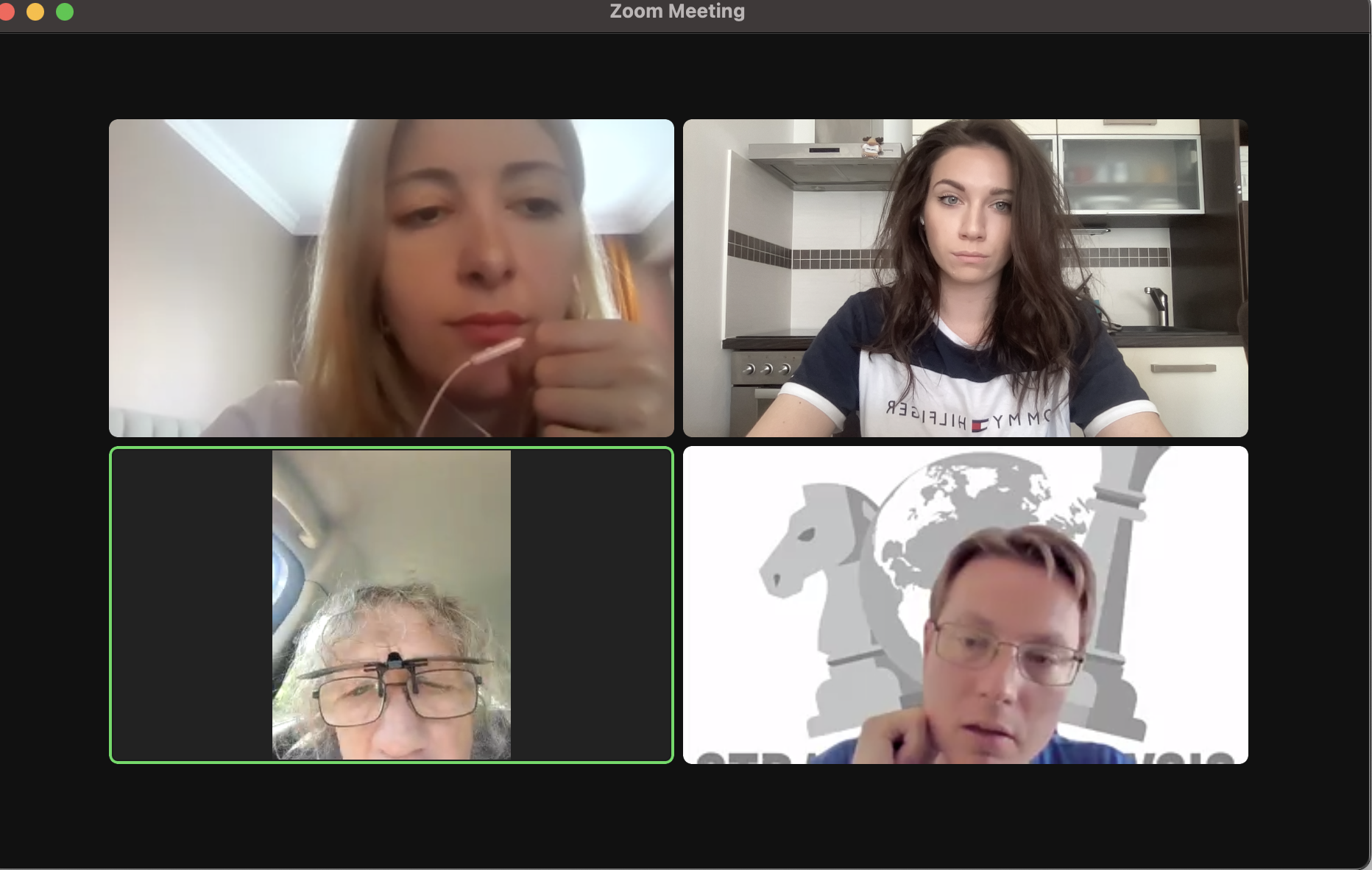






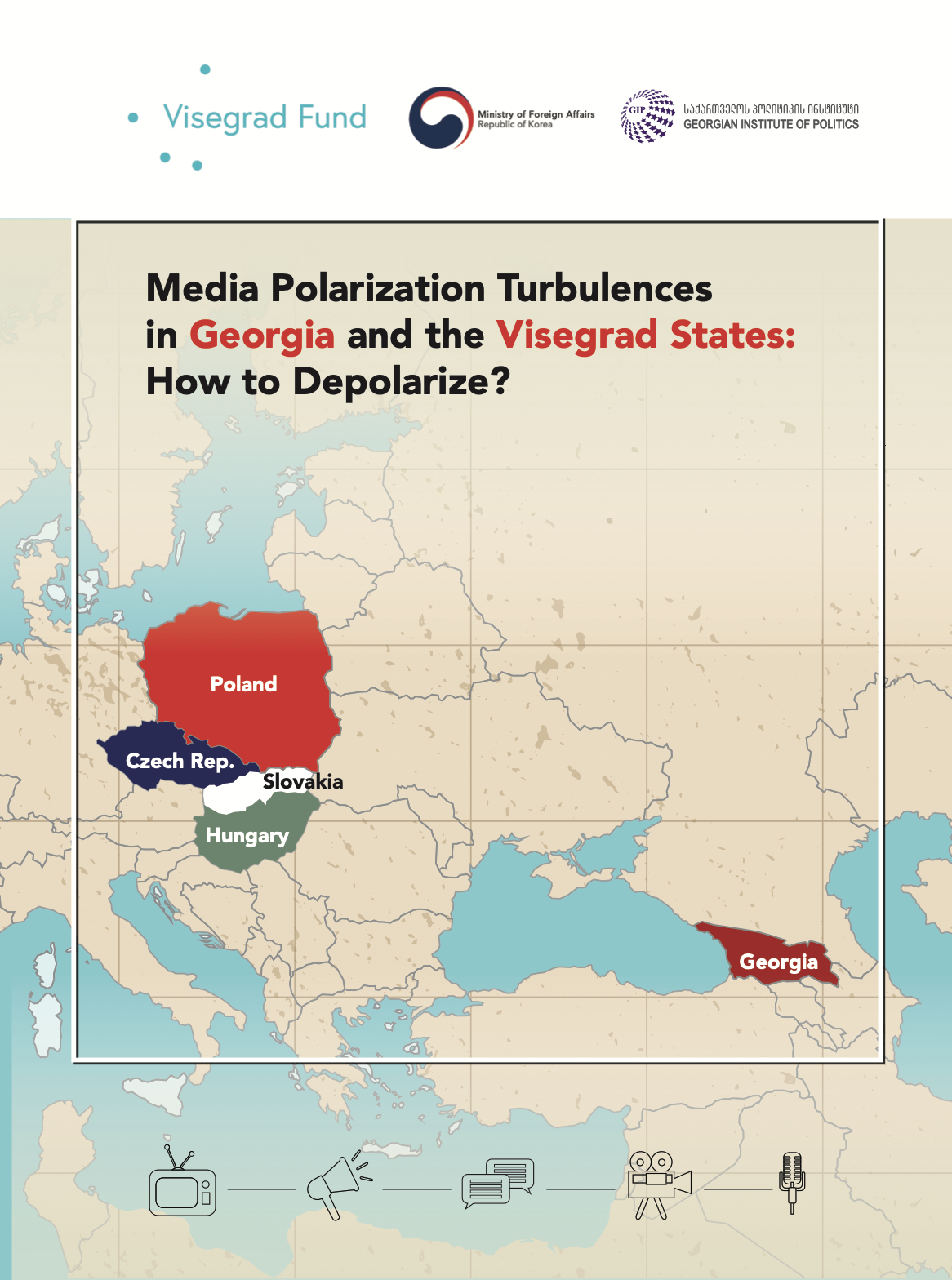
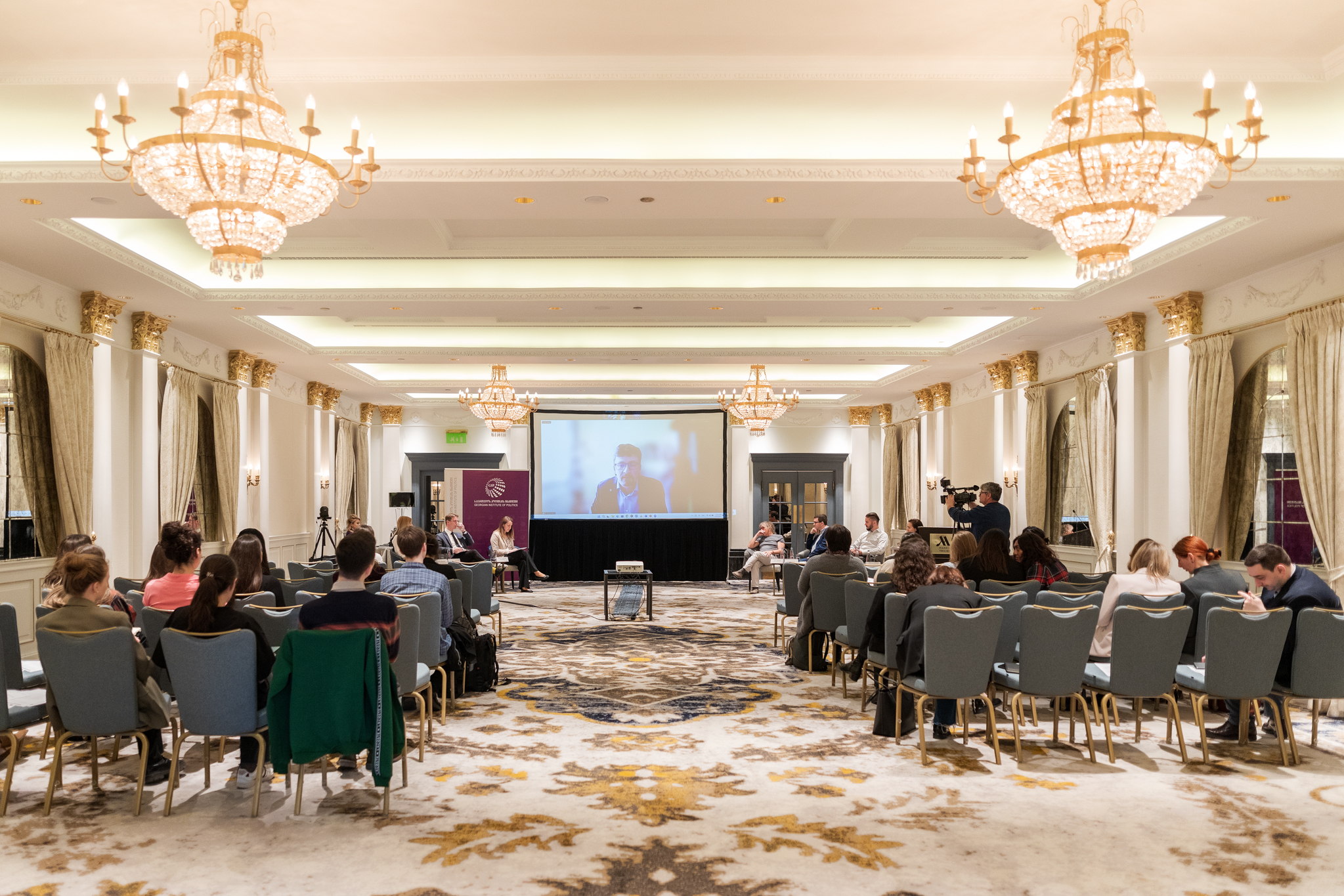
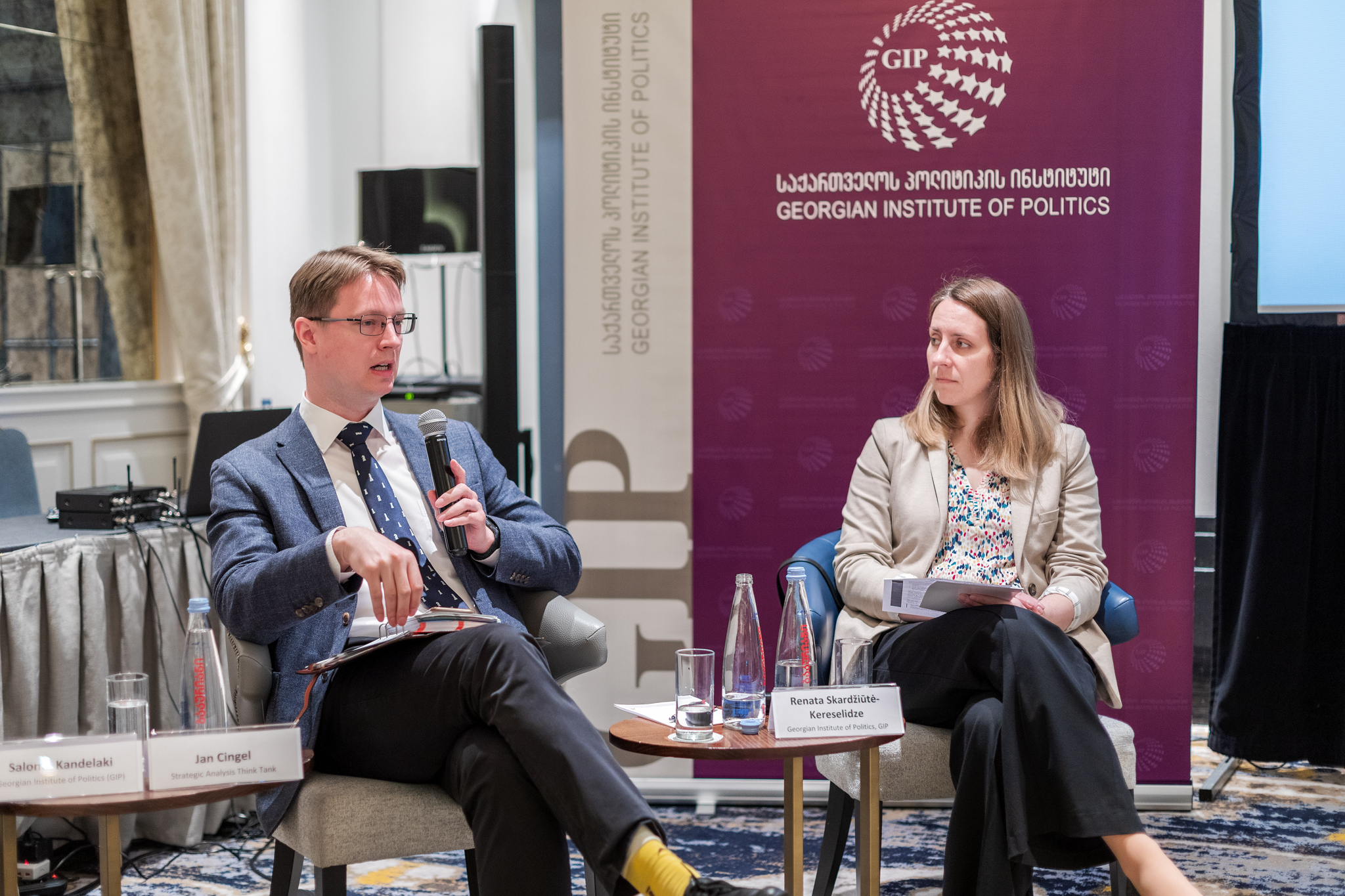

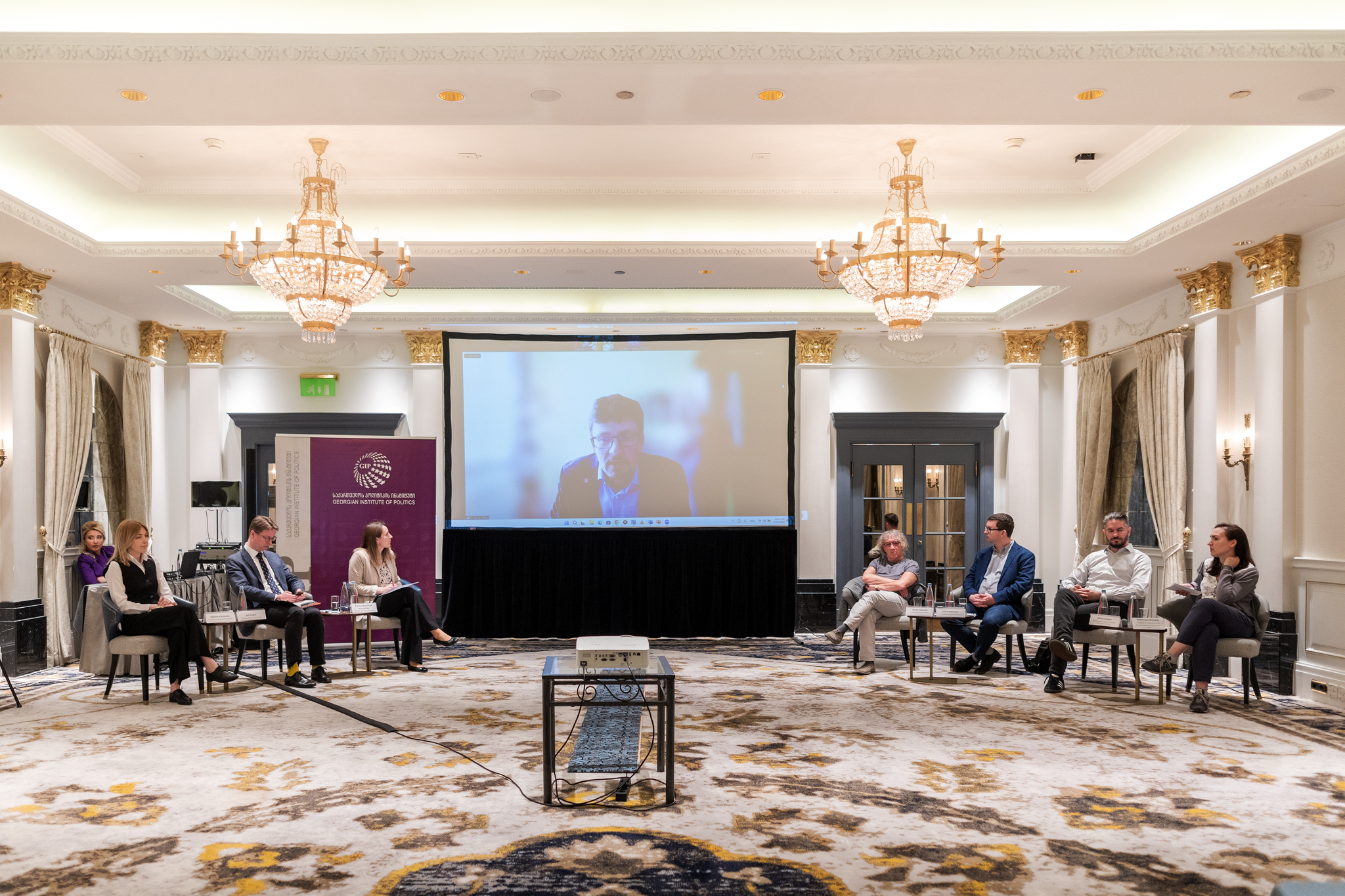
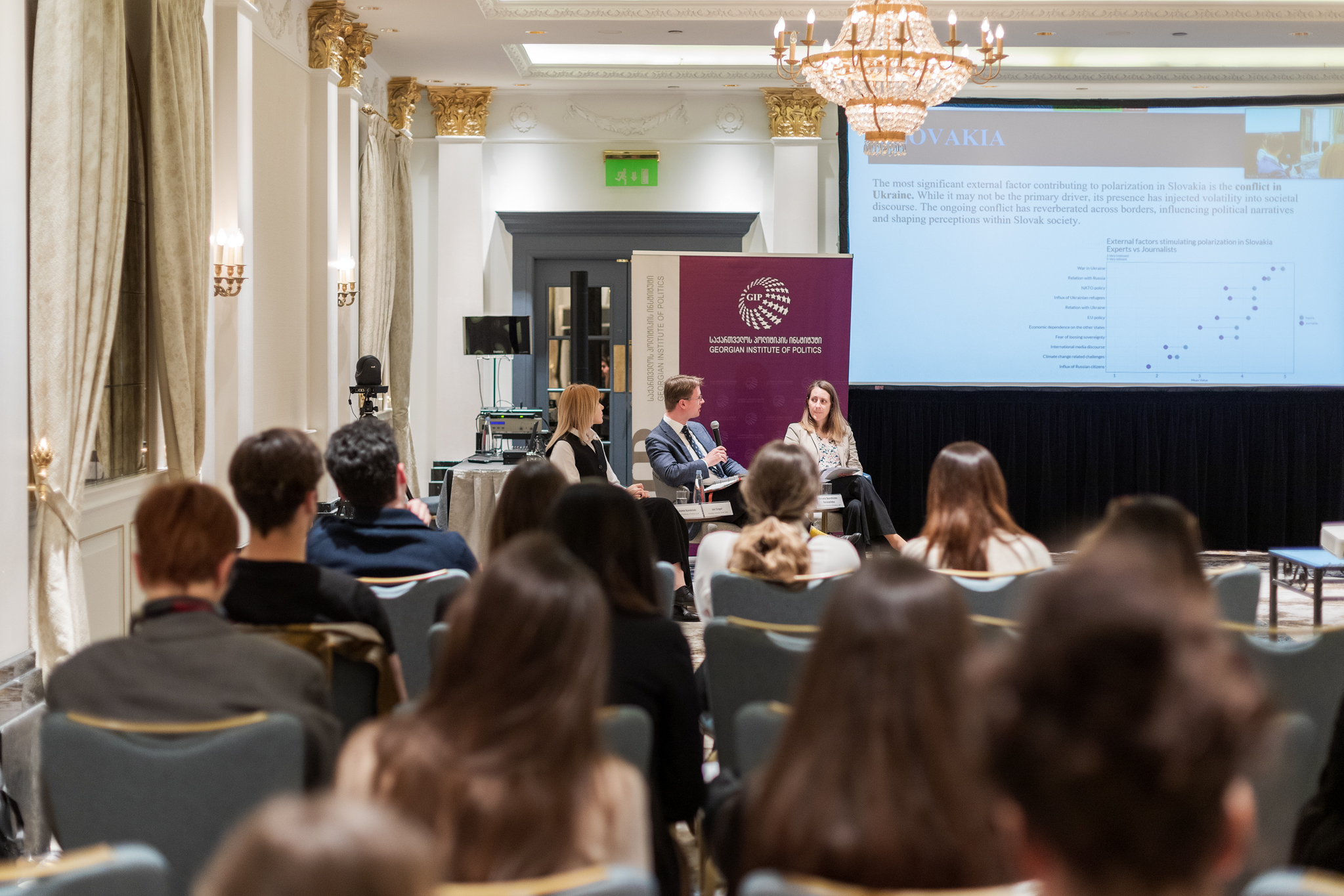
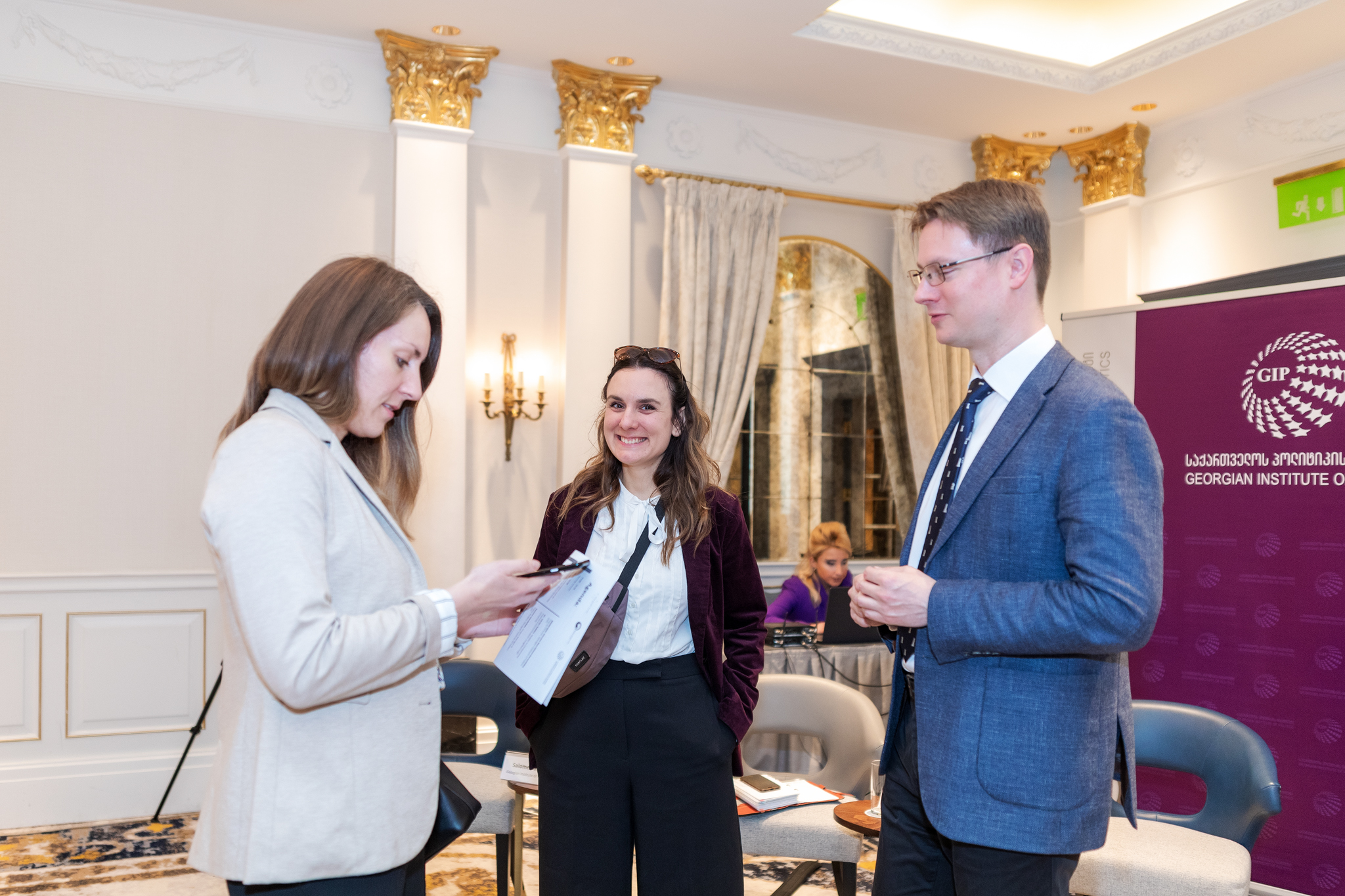

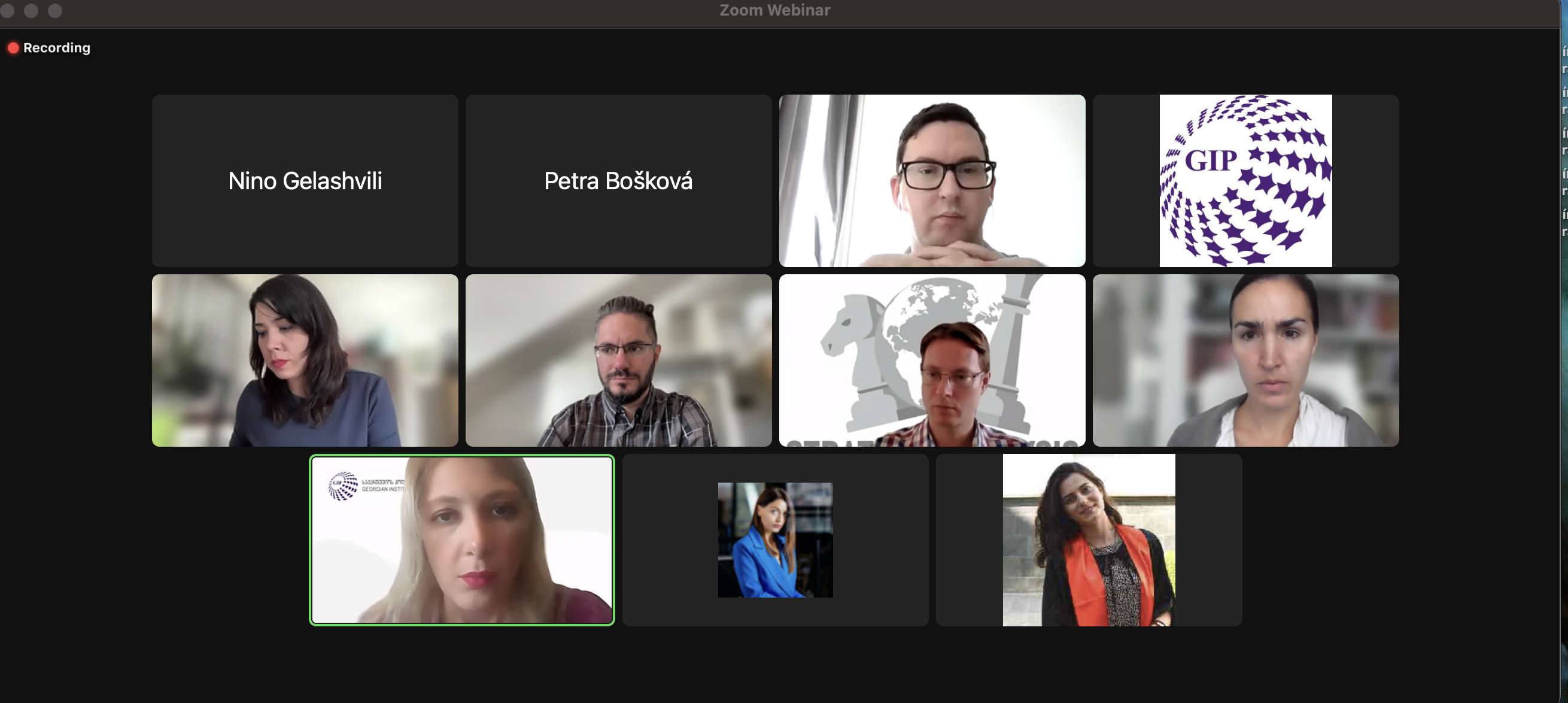
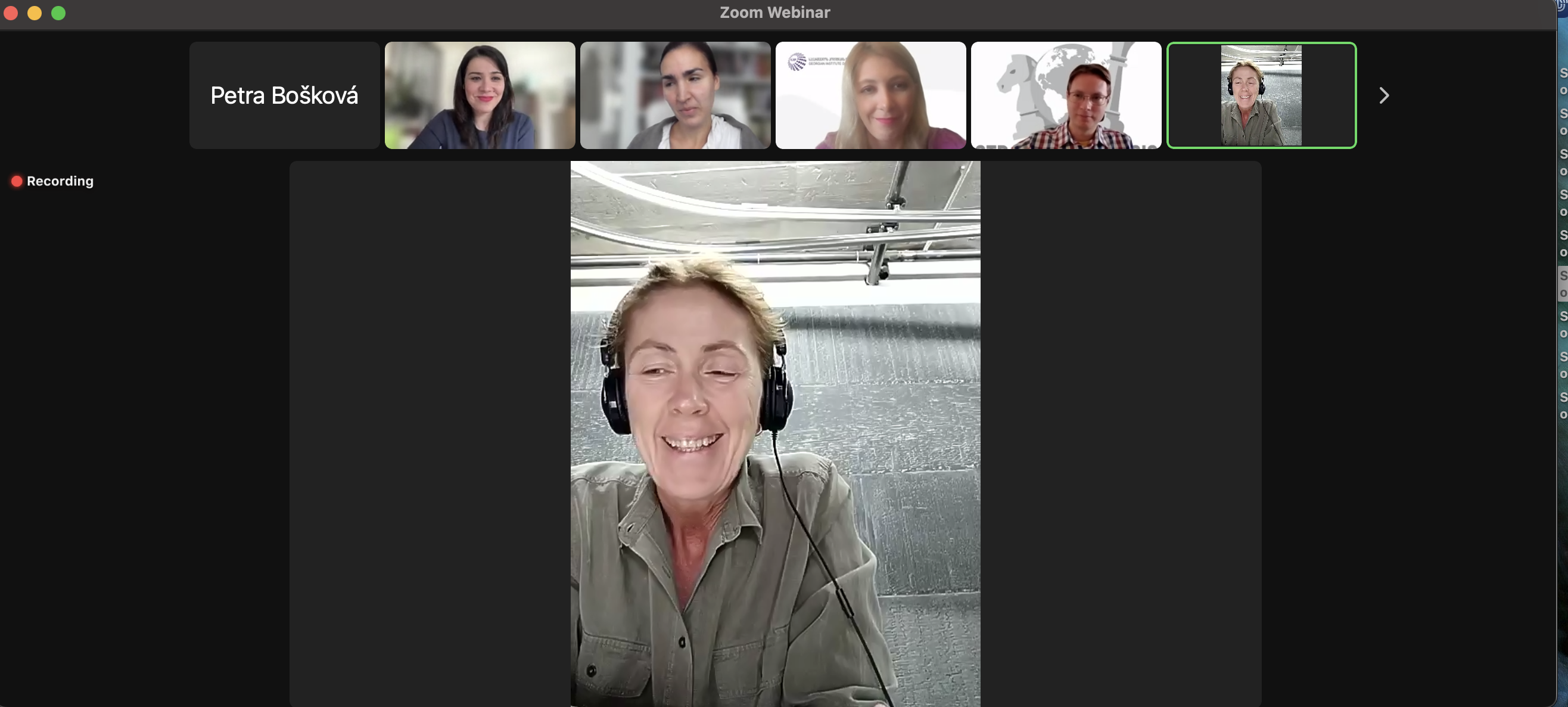
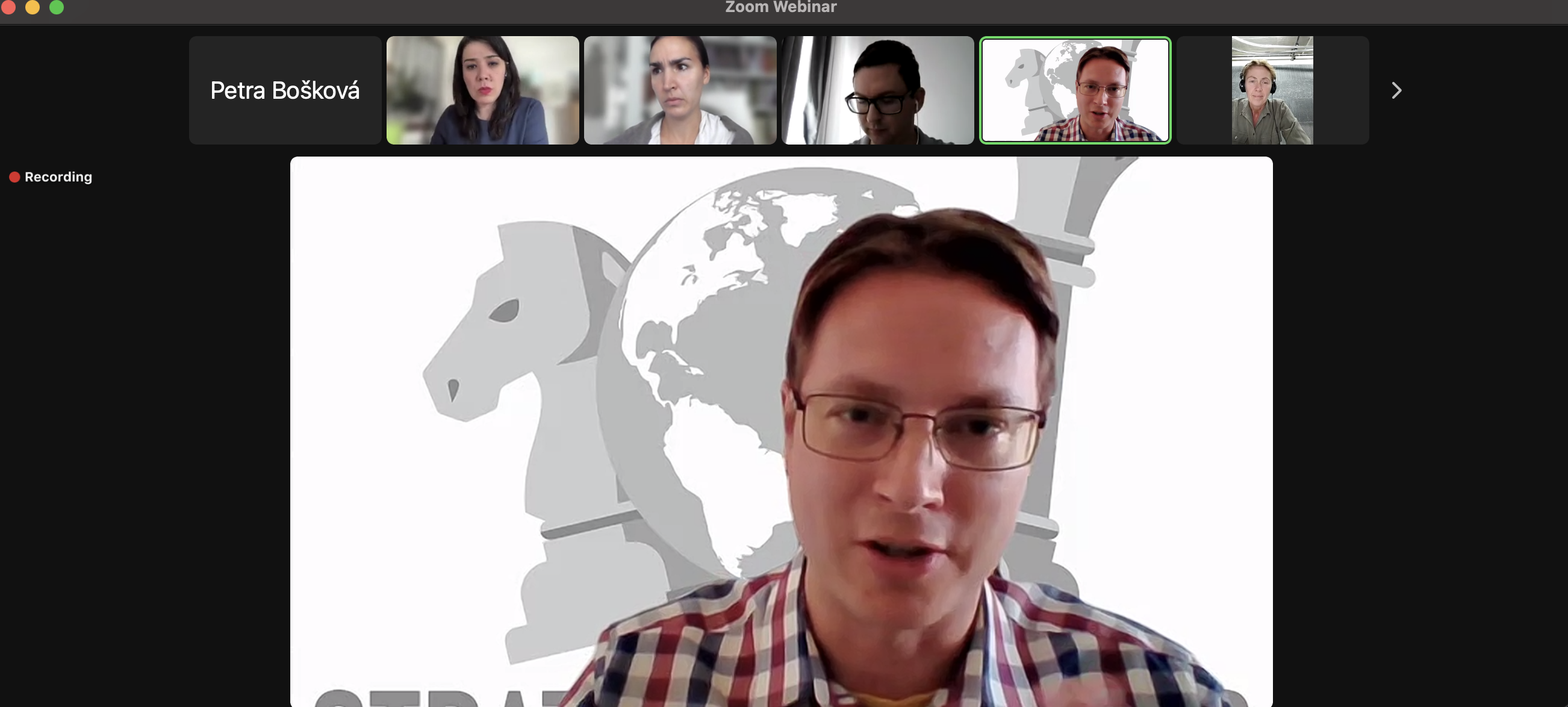
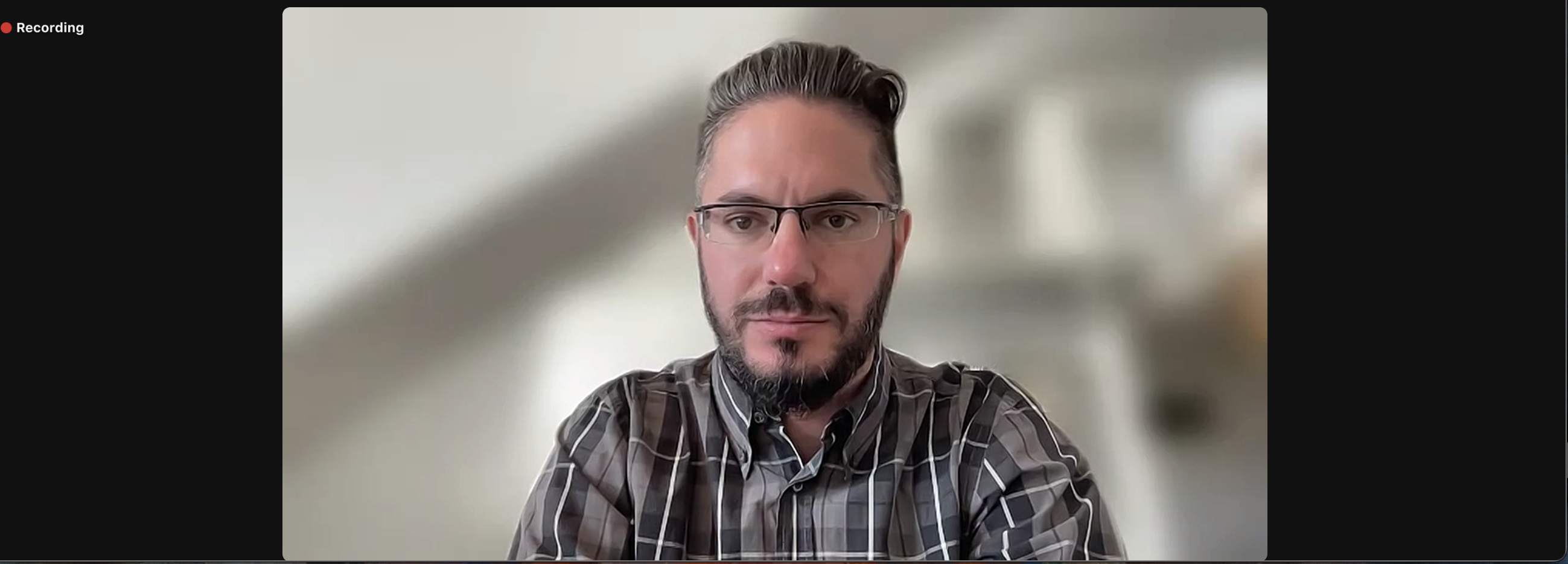
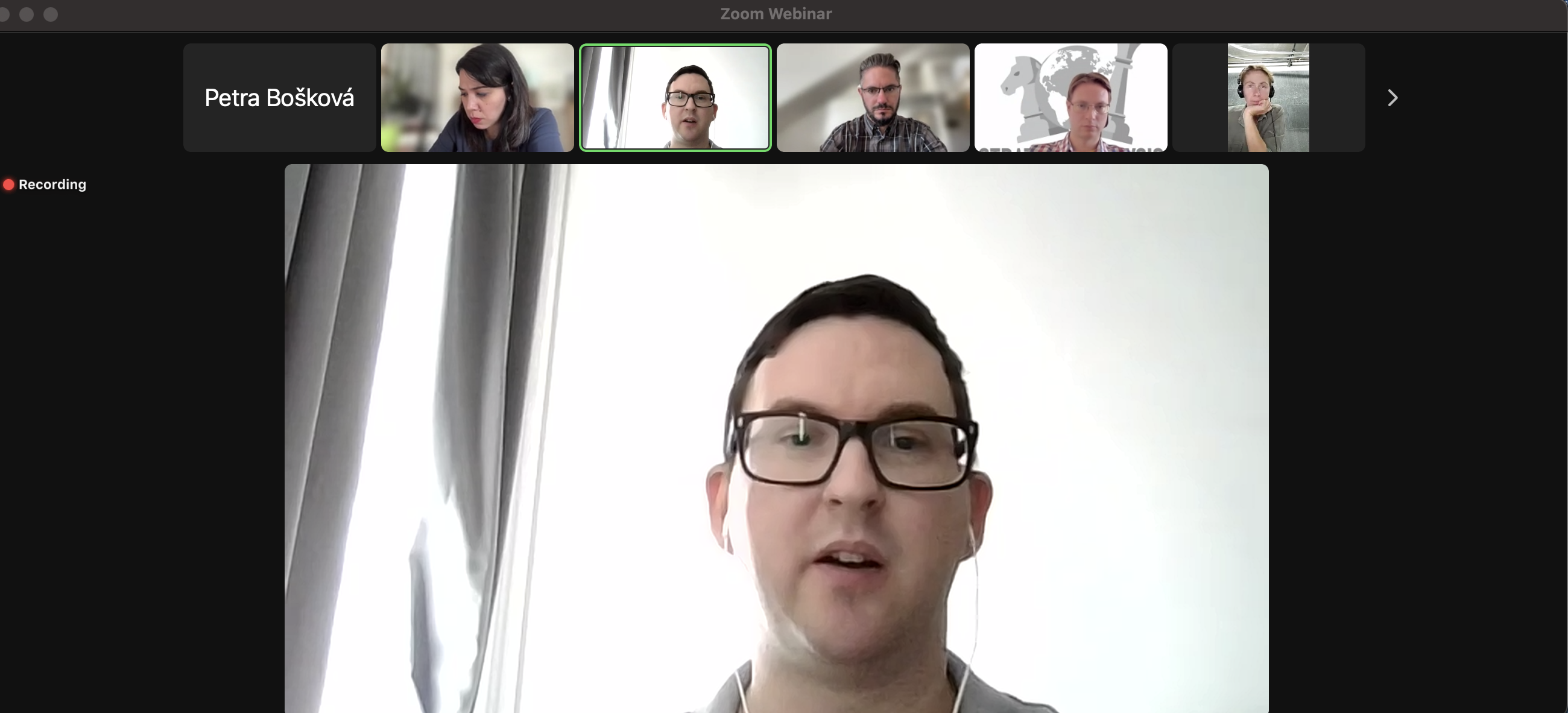
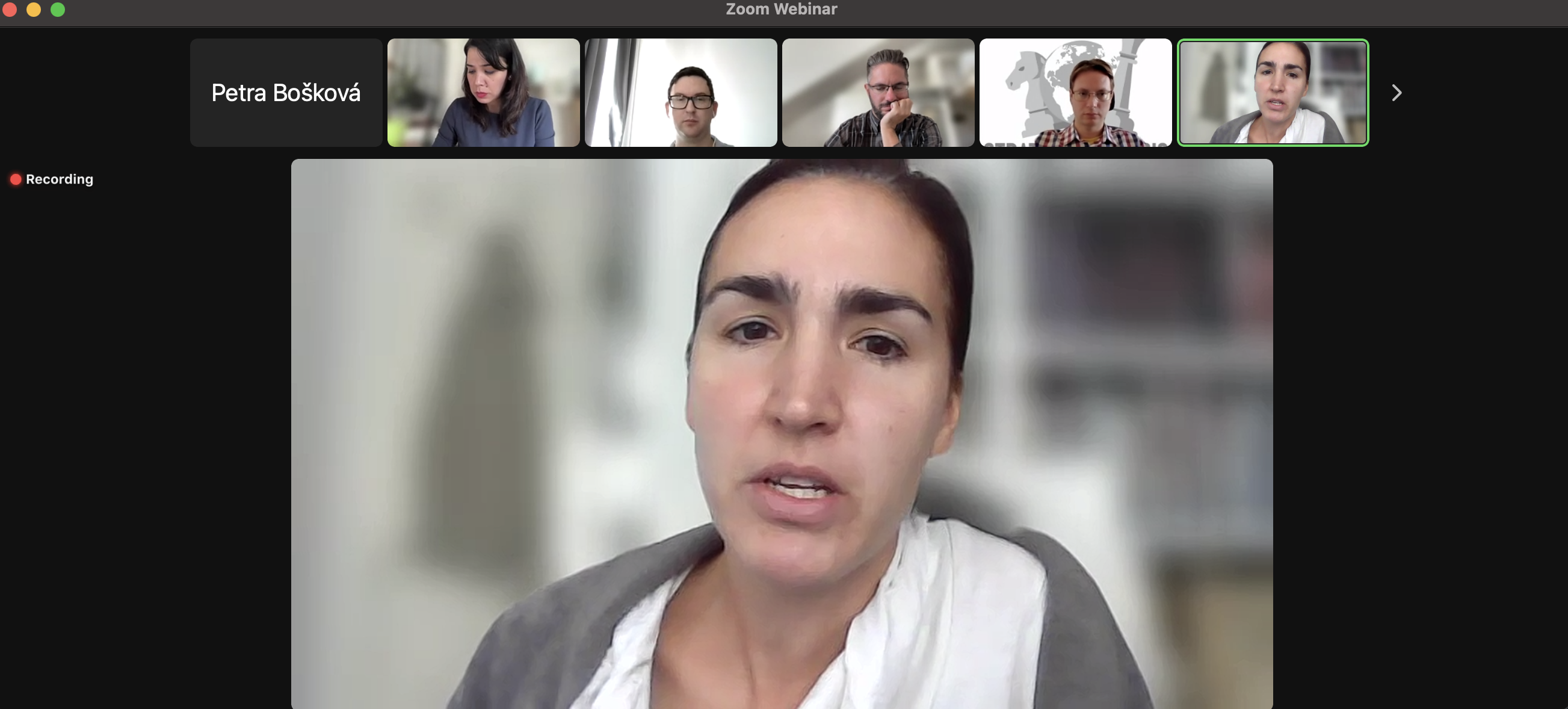
Contact us